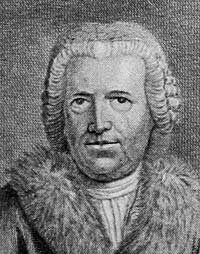

Theorist and composer. He apparently studied theology and jurisprudence, as well as music, in Danzig. From 1649 he was in the employ of the Elector of Saxony at Dresden. There he gained the admiration of Heinrich Schütz, from whom he had further instruction. He studied briefly in Rome and soon thereafter was appointed Vice-Kapellmeisterat Dresden in 1655. Possibly resentful over the favoring of Italian Musicians at the Saxon court, Bernhard procured in 1663 a post as Kantor at St. John's School in Hamburg. In 1670 Schütz commissioned him to compose a funeral piece for him, which was performed at the elder composer's funeral two years later. Though highly regarded by his contemporaries as a composer, principally of sacred vocal works in both German and Latin, Bernhard is remembered today chiefly for his theoretical treatises, especially for the Tractatus compositionis augmentatus,widely circulated in manuscript during the second half of the 17th century. In it he divided music into three categories: the stylus gravis, the classical polyphony of Palestrina and others; the stylus luxurians communis,the style initiated by Monteverdi; and the stylus luxurians theatralis,or recitative style.